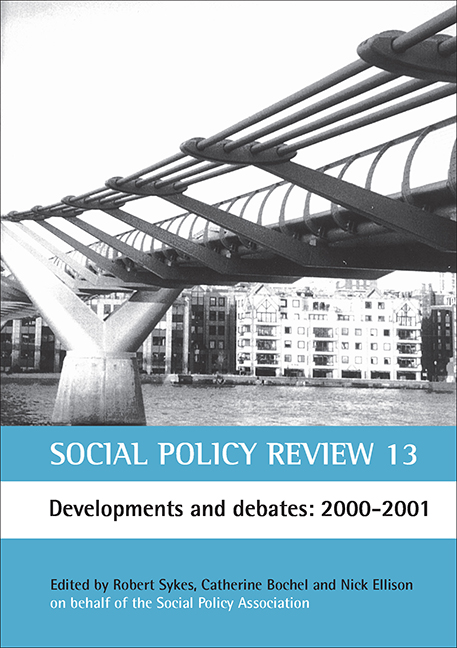seven - Copenhagen +5: what should be done about the transition in Eastern Europe?
Published online by Cambridge University Press: 20 January 2022
Summary
This chapter is based on an analysis and set of recommendations that were commissioned in 2000 by the UN Department of Economic and Social Affairs (UNDESA) for a review of the social situation in Central and Eastern Europe in the preparations for the UN World Summit for Social Development scheduled for June, 2000 in Geneva. They were presented to a joint meeting of the UNDESA and the Inter-Parliamentary Union in St Petersburg in March, 2000, and subsequently to a joint session of the UN Development Programme (UNDP) and Council of Europe in the Geneva meetings.
The chapter examines a number of areas in which social costs have risen sharply, such as poverty and health, and makes suggestions as to policy initiatives that the UN might recommend as ways of addressing these issues. The chapter deliberately links analysis and policy recommendations. A similar exercise has recently been published by the Institute for Public Policy Research (Eatwell et al, 2000).
The Copenhagen +5 process
Social policy has been given a more central place in UN deliberations since the World Social Summit in Copenhagen in 1995. At the end of that series of meetings 117 countries jointly supported the 10 commitments that were adopted covering three core issues of poverty, employment, and social development. In addition, there was a commitment to review the progress that countries were making towards these social goals every five years, with the first review due in Geneva in 2000. Other major UN meetings, such as Beijing on Women, Cairo on Population, and Rio on the Environment, have had a similar commitment to regular review.
The 10 commitments covered both specific areas of social need as well as more general issues about developing and sustaining the mechanisms for these needs to be met. In the process leading up to the 2000 review, the UN Economic and Social Council invited countries to report on the progress that they had made in meeting the Copenhagen commitments. By December 1999, 74 countries had reported on poverty reduction and employment in some detail, and in addition had discussed the extent to which the social integration of vulnerable groups such as older people was improving.
- Type
- Chapter
- Information
- Social Policy Review 13Developments and Debates: 2000–2001, pp. 133 - 156Publisher: Bristol University PressPrint publication year: 2001



